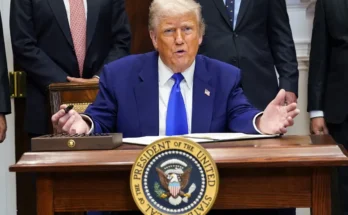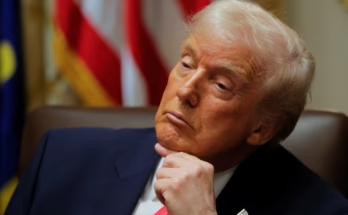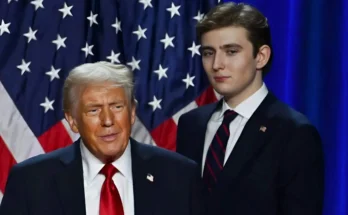I’ve watched my uncle Donald unravel for years, but lately, something feels different—more urgent, more alarming. As a clinical psychologist and someone who knew him long before the cameras did, I see signs that go beyond politics or personality. His recent town hall was disturbing: he couldn’t stay on topic, forgot names, and even stopped answering questions to listen to music for nearly 40 minutes. That’s not eccentricity—it’s cognitive decline. I’ve seen this before in my grandfather Fred, who suffered from Alzheimer’s. The confusion, the disorientation, the forgetting—it’s all there. And Donald’s untreated psychiatric issues only compound the problem.
When I was young, I watched my grandfather slowly forget the people around him. He forgot my grandmother. He forgot me. But he never forgot Donald. That always struck me. Now, I see echoes of Fred in Donald—especially the vacant stares, the spatial confusion, the inability to process time. It’s not just forgetfulness. It’s a collapse of orientation. And while I’m not a neurologist, I’ve done neuropsychological testing. I know what I’m seeing. It’s terrifying to witness this in someone who still commands such power and attention.
Donald’s mental health has always been precarious. Narcissism, sociopathy, paranoia—they’ve long been part of his psychological makeup. But what’s happening now is different. It’s a deterioration. A decompensation. And the media, once again, is failing to confront it. They normalize the bizarre. They laugh off the dangerous. But this isn’t funny. It’s a man slipping away before our eyes, and no one seems willing to say it out loud.
I did say it. In my newsletter, in interviews, on podcasts. I’ve written three books about the trauma our family inflicted and endured. But this moment feels heavier. Because it’s not just about Donald anymore. It’s about a country that might follow a man who can’t tie his own shoes, who forgets where he is, who listens to music instead of answering questions. It’s about what we’re willing to ignore for the sake of spectacle.
I remember the way my grandfather used to forget people. The least important ones vanished first. You could measure your worth by how quickly he forgot you. Donald is forgetting now—but not the people. He’s forgetting reality. And that’s far more dangerous. He’s the oldest person ever to run for president. And he’s unraveling in public. We need to stop pretending this is normal.
I’ve been accused of bias, of bitterness, of exploiting family drama. But this isn’t personal. It’s clinical. It’s historical. It’s urgent. I’m not speaking out because I hate Donald. I’m speaking out because I know what untreated mental illness looks like. And I know what happens when we ignore it. We’ve seen it in families. We’ve seen it in leaders. We’re seeing it now.
I wish I didn’t have to say these things. I wish someone else would. But silence is complicity. And I won’t be complicit in this descent. Donald is not well. And the stakes are too high to pretend otherwise. If we care about truth, about leadership, about the future—we need to confront this. Not with cruelty, but with clarity.


